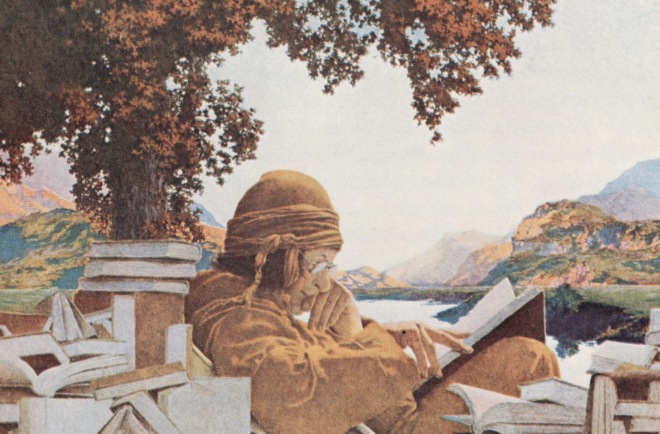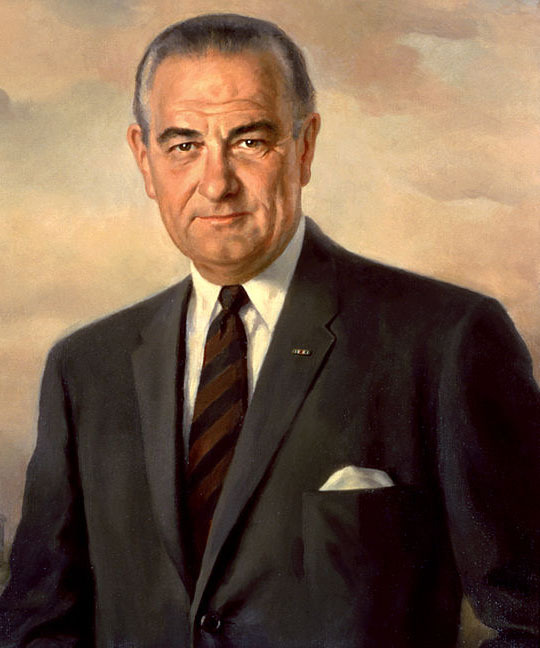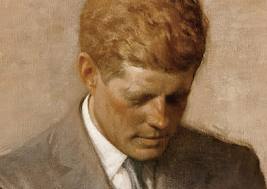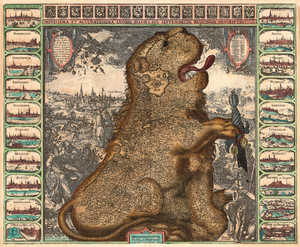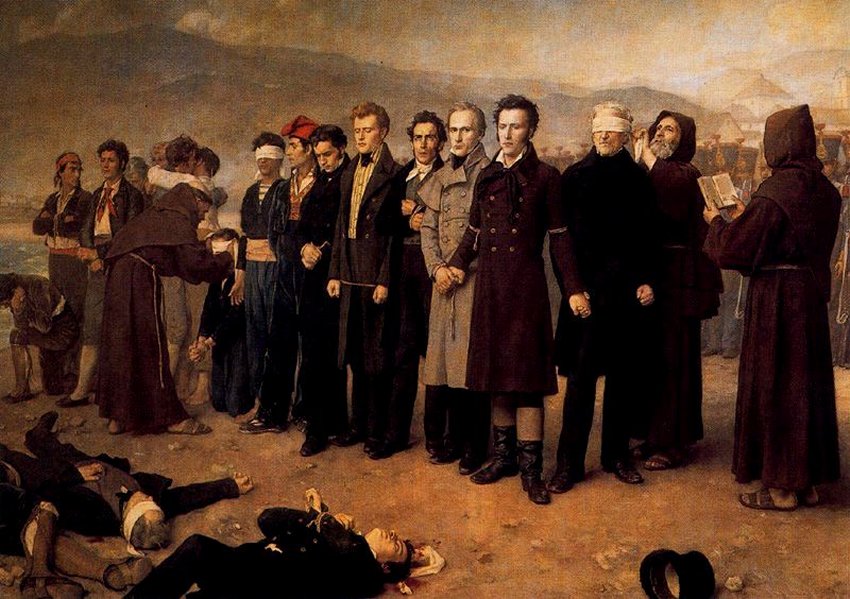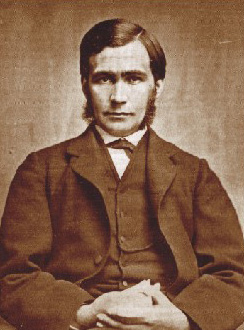by Roger Devlin

I came late to the issues characteristically discussed in The Occidental Quarterly.
I had no interest in politics during my early adult years, a circumstance for which I am now grateful. Like most Americans, I assumed that “politics” meant electoral contests between hardly-distinguishable parties.
In early adulthood I encountered The Gulag Archipelago and gained a proper appreciation of just how high the stakes of politics could be. Initially, I gravitated toward that combination of anti-Communism and status quo Social Democracy known as neo-conservatism. In the academic bubble I then inhabited, such a stance was viewed as radical.
As a college instructor, I was baffled to receive student essays vehemently maintaining the “equality” of black and white, or singing the heroism of Rosa Parks. My classes were in philosophy, and I never mentioned race at all. Clearly, this was the stuff students had been taught to write for their professors before they got to me.
The stridency of their language suggested they were defending an idea under heavy attack. But where was the attack? All I had ever heard anyone say about races is that they were “equal.” If this is all the students wanted to say, what were they getting so worked up about? They wrote as if they were trying to scratch an itch.
I wished to devote my life to learning and scholarship, with no thought of practical application beyond eventually sharing my knowledge with the generation that came after me. Of course, I quickly learned that few of my colleagues shared this elevated, quasi-monastic notion of the scholar’s calling. Some turned out to hold beliefs weirdly similar to the jailors described by Solzhenitsyn; many more did not, but were untroubled by—or afraid of—those who did.
Accordingly, my first practical cause belonged to the realm of academic politics: defending the life of the mind from ideological corruption. I was also fascinated by the sheer power which ideology exercised over many men’s minds, and by how a band of resentful mediocrities armed with little else had infiltrated and virtually subjugated an institution made up of highly intelligent people.
The ideologues talked a great deal about race, of course; but this did not lead me to take any interest in the subject myself. I vaguely hoped that once the imposters had been purged from the academy we could forget about race and get back to learning and teaching.
I devoted several years to investigating the first principles of modern “progressive” thought, publishing a little philosophical primer on the subject (Alexandre Kojève and the Outcome of Modern Thought). But this still did not lead me to the issue of racial differences, which are an empirical rather than philosophical matter. The entire drama of ideological politics can be played out within a homogeneous society, as students of the French Revolution know.
Nevertheless, I have come to the point where I prefer to publish even purely sociological analysis (e.g., “From Salon to Guillotine,” Summer 2008) in an explicitly racial-realist venue such as The Occidental Quarterly.
Here is why. Those traditional conservatives who continue to admonish us against the dangers of “biological determinism” are increasingly condemning themselves to irrelevance. The plea that “race isn’t everything” is valid per se, but not especially germane to the situation in which we find ourselves. For we are not the aggressors in the battle now being fought. And in any battle, it is the aggressors’ prerogative to choose the point of attack: if they come at you by land, you do not have the option of fighting them at sea.
Race is everything to our enemies, and it is the angle from which they have chosen to attack our entire civilization. It is also where they have achieved their greatest victories: you can see this from the way “conservative” groups feel they must parrot the language of the egalitarians just to get a hearing (see: here). Such well-meaning but naive friends of our civilization are in effect consenting to occupy the status of a “kept” opposition.
The more we try to avoid confronting race directly, the more our enemies will press their advantage at precisely this point. Tactically, they are correct to do so. And they will continue until we abandon our defensive posture and turn to attack them on their own chosen ground.
The Occidental Quarterly is blessed with contributors who have made racial differences and ethnic conflict their lives’ study, and I cannot match them in their own fields. But I prefer to throw in my lot with them because they are unambiguously not part of any “kept” opposition. Being a pariah at least keeps one honest.
A turning point for me was reading Glayde Whitney’s “The Biological Reality of Race” in American Renaissance (October 1999). Like everyone else in America, I had been subjected to years of race-talk, but the aim had always been to lead me to “feel” in a predetermined way. Even my students’ papers had been apprentice work in this genre. Whitney, by contrast, was simply setting forth information. Reading him was like being addressed as an adult after years of being talked down to. This by itself was enough to get me to sit up and take notice of what he was saying.
Moreover, he contradicted everything I had ever been told. And he did so while showing that race could be as interesting as any other scientific topic. I had never seen anyone actually diagram the human family tree, showing which groups were most closely related and which most distantly separated. I was particularly struck by the revelation that the deepest evolutionary cleft within the human race was that between black Africans and everyone else.
But even a complete racial science based upon exhaustive knowledge of the human genome would never make a dent in anti-white ideology. This is because ideologies are not scientific theories: they are systems of ideas mobilized by groups of men in their struggle to acquire or maintain power over other men. They are a misuse—a prostitution—of the faculty of human reason, whose proper end is the discovery of the true. Ideological doctrines are true, in the best of cases, only per accidens; more often they are falsehoods publicly maintained through violence and intimidation.
Not being based upon knowledge, the content of ideologies change with the elites and counter-elites which champion them. Past ideological regimes have been governed by Marxists who spoke of class rather than race. Still earlier regimes (and revolutionaries) invoked religious concepts. And, yes, racial science itself has been prostituted in the service of what was essentially a political ideology.
The masters of the West long ago ceased performing even the minimum function required of any governing elite: seeing to the physical survival of the people it rules. Instead, it maintains its power by setting its clients (“designated victims”) against the rest of us. “Antiracism” is the ideology, but what is really going on underneath is the mobilization of envy, covetousness, and the libido dominandi.
Much of the elite itself is white, of course. But this is really no more paradoxical than a company getting rich by staging a “going out of business sale” that never ends. Except, of course, that the “white anti-racism” game will have to end soon.
The regime’s greatest crime, however, lies not in setting its clients against us; it is what it has done to our own young people. Those indoctrinated students whose essays so perplexed me had been formed into instruments of an alien will: pawns in a struggle inimical to their own interests, and whose real nature they could not grasp. They were no less victims for being willing.
Writing for The Occidental Quarterly is essentially a continuation of the work I had always intended to do, adapted to a hostile political situation I have come to understand better. In the most general terms, this work remains: the pursuit of knowledge, teaching, and the fight against the same ideological enemies I encountered in the academy. For a professor-manqué, writing for an independent journal is the equivalent of what home-schooling is for a parent: a quiet revolt against institutions which have lost all claim to allegiance.
TOQ Online, October 1, 2009
